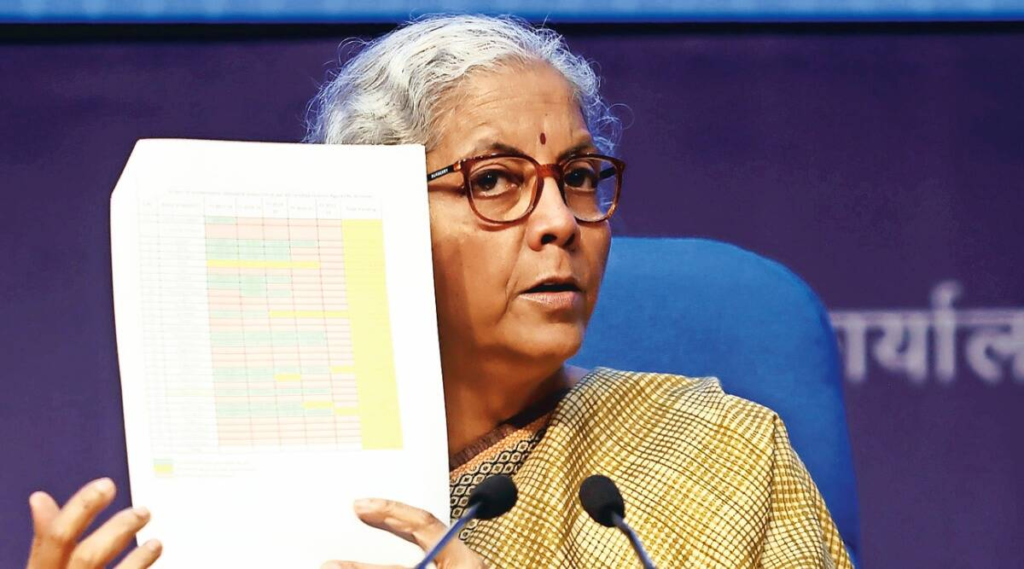“I would also call upon the private sector of the country to increase their investment just like the government so that the country gets maximum benefit from it,” Modi said while addressing the tenth post-Budget
Highlighting the need to support the private sector working in different geographical areas and economic sectors, Prime Minister Narendra Modi on Tuesday urged the corporates to increase investment in line with the government’s push towards capital expenditure.
“I would also call upon the private sector of the country to increase their investment just like the government so that the country gets maximum benefit from it,” Modi said while addressing the tenth post-Budget Webinar on ‘Enhancing Efficiency of Financial Services for Creating growth opportunities’.
The benefits of India’s economic development should reach every class and person, he said, urging all stakeholders to work with this vision. He further said that India is being described as a bright spot of the global economy and India has attracted the highest FDI in 2021-22, primarily into the manufacturing sector. He also stated that applications are coming in to avail the Production Linked Incentive (PLI) scheme which makes India an important part of the global supply chain.
On the tax-related post-Budget view, the Prime Minister said as opposed to the past, the tax burden has come down significantly in India due to GST, reduction in income tax and corporate tax. This has resulted in better tax collection as the gross tax revenue was about Rs 11 lakh crore in FY14, which can rise to Rs 33 lakh crore in 2023-24, an increase of 200 per cent, he said adding that the number of individual tax returns filed increased from 3.5 crore to 6.5 crore from 2013-14 to 2020-21.
“Paying tax is such a duty, which is directly related to nation building. The increase in the tax base is proof that people have faith in the government, and they believe that the tax paid is being spent for public good,” he said.
Modi also talked about the expansion of Unified Payments Interface (UPI), pointing out that in the 75th year of independence, 75,000 crore transactions were done digitally. “RuPay and UPI are not just a low cost and highly secure technology, but it is our identity in the world. There is immense scope for innovation. UPI should become a means of financial inclusion and empowerment for the whole world, we have to collectively work for it. I suggest that our financial institutions should also have maximum partnership with fintechs to increase their reach,” he said.
He told the banking sector that they have a robust financial system and a banking system that is in profit after being on the verge of collapse 8-10 years ago. “Today, the need of the hour is that the benefits of the strength in India’s banking system should reach the maximum number of people,” he said.
Citing government’s support to the MSME sector, the Prime Minister asked the banking system to reach out to the maximum number of sectors. “1 crore 20 lakh MSMEs have received huge help from the government during the pandemic. In this year’s budget, the MSME sector has also got additional collateral-free guaranteed credit of 2 lakh crores. Now it is very important that our banks reach out to them and provide them adequate finance,” he said. He also pointed out that the government’s policies related to financial inclusion have made crores of people part of the formal financial system.
The government has helped “fulfill the dreams of crores of youth by giving Mudra loans of more than Rs 20 lakh crore” without a bank guarantee, he said. More than 40 lakh street vendors and small shopkeepers received help from banks through PM Swanidhi Yojana, he added.
Stating that the entire world is witnessing the impact of India’s fiscal and monetary policy during the COVID-19 pandemic, he mentioned the efforts taken in the last 9 years for strengthening the fundamentals of the country’s economy.
He also talked about the time when the world looked at India with suspicion, saying that discussions on India’s economy, budget and goals would often begin and end with a question. The question mark at the beginning and end of the discussion has been replaced by ‘vishwas’ (trust) and ‘apeksha’ (expectations), he said, adding that there have been changes in financial discipline, transparency and inclusive approach.

Source:indianexpress.com


